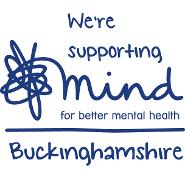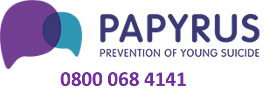Do you know what narked me most about the pandemic (notwithstanding the tragic loss of life obviously)?
The number of people sprayed all over the media talking about mental health. Politicians bandied the phrase about to show how woke they were to the needs of the ‘Great and Resilient British People’. Journalists wielded it like an axe at politicians as yet another unanswerable question in their campaign to become the new Jeremy Paxman. Everyone who had a voice or a platform finished every comment with “ … and of course we have to consider the impact on people’s mental health”.
I don’t know about you, but none of these people ever asked how I was doing. They spoke for me, for you, for everyone, with no authority, no mandate, no conviction (mostly), not because they cared, although I don’t doubt that some of them did, but because it had become required rhetoric. Don’t get me wrong, I didn't mind them talking about it. I minded them talking about it, highlighting its importance and then not doing anything about it.
Two years on and what has changed? How much extra funding has been announced for mental health support? How much time and effort is going into recruiting the additional counsellors, psychotherapists, social workers et al that we now undoubtedly need and are going to need over the next few years? How much additional training are GPs getting to deal with anxiety, depression, panic attacks? How much free training on mental health first aid is being provided for volunteers at sports clubs, social clubs, Scout groups, etc by the government (not the charity sector who handle almost all of this currently)? What has actually been done to help those kids whose education was devastated by school closures?
If any of it is being done, how do you access it? I don’t know the answers to these questions, but on the basis that I have not heard one word about any of it from an official source, I’m going to guess, not much.
A source close to the then Prime Minister (and yes, I do actually have a source close to the Prime Minister) said that his response to some of these questions was that he was 'so impressed with the resilience of the British people'. I’ll let you draw your own conclusions.
In a previous life, I had an office and people traipsed into it asking me for stuff, or money, or resources, or help. Nine times out of ten, I would point to a sign on my wall that said, “If not you, then who? If not now, then when?” That usually did the trick. So, yeah, me. And yeah, now.
So how are you doing?
If you’re good, then great.
But how are you really doing?
Out of 10?
Reason I ask again is that Time to Change, a social movement working with the MIND charity reckon that just asking once doesn’t often produce an honest response. We use it as a greeting and don't expect (and aren't ready for) anything other than a fairly bland response. But the second time, or a graded question is more likely to. I’m not making it up, check out #AskTwice if you do that twitter stuff.
You might be thinking, ‘Not so good, but I’m not talking to you, in fact I’m not ready to talk to anyone’. Fair enough. Have you tried talking to yourself. They say it’s the first sign of madness, but I’ve got a lot more sense out of it than I ever have talking to some other people! I’m not making that up either. Top Tip number 1 from MIND in the brochure they have produced with Club Matters is, 'Reflect on your Own Mental Health.' Try writing it down if you like. Sometimes that helps.
If you’re comfortable reaching out to someone, do it.
“Mental health problems can affect anyone, but my misconceptions and fear of judgement prevented me from speaking out for a long time” (straight off Time to Change’s website, a bloke called Barry).
If someone reaches out to you and you’re comfortable with it, my advice (what do I know, but here it is anyway), is just listen to them. You’re not responsible for them, you’re probably not a life coach, you almost certainly won’t have the answers, but listening helps, and by the way, really listening is harder than you think, but it really helps.
If you’re not comfortable being reached out to and someone does, tell them that. Your safety is as important as theirs but maybe you can point them somewhere that can help. Or maybe you need somewhere. I’ve listed a few links below to organisations that know their stuff in this area (list is not mine, it comes from my college tutor who is a highly qualified practising counsellor, who also knows his stuff in this area).
We can speak of this as much as you like, or we can never speak of it again. Whatever you’re comfortable with.
Four years ago we lost one. No more.



|
Buckinghamshire Mind info.pdf Size : 76.775 Kb Type : pdf |






|
Supporting mental wellbeing during the Covid-19 pandemic (1).pdf Size : 1189.951 Kb Type : pdf |
